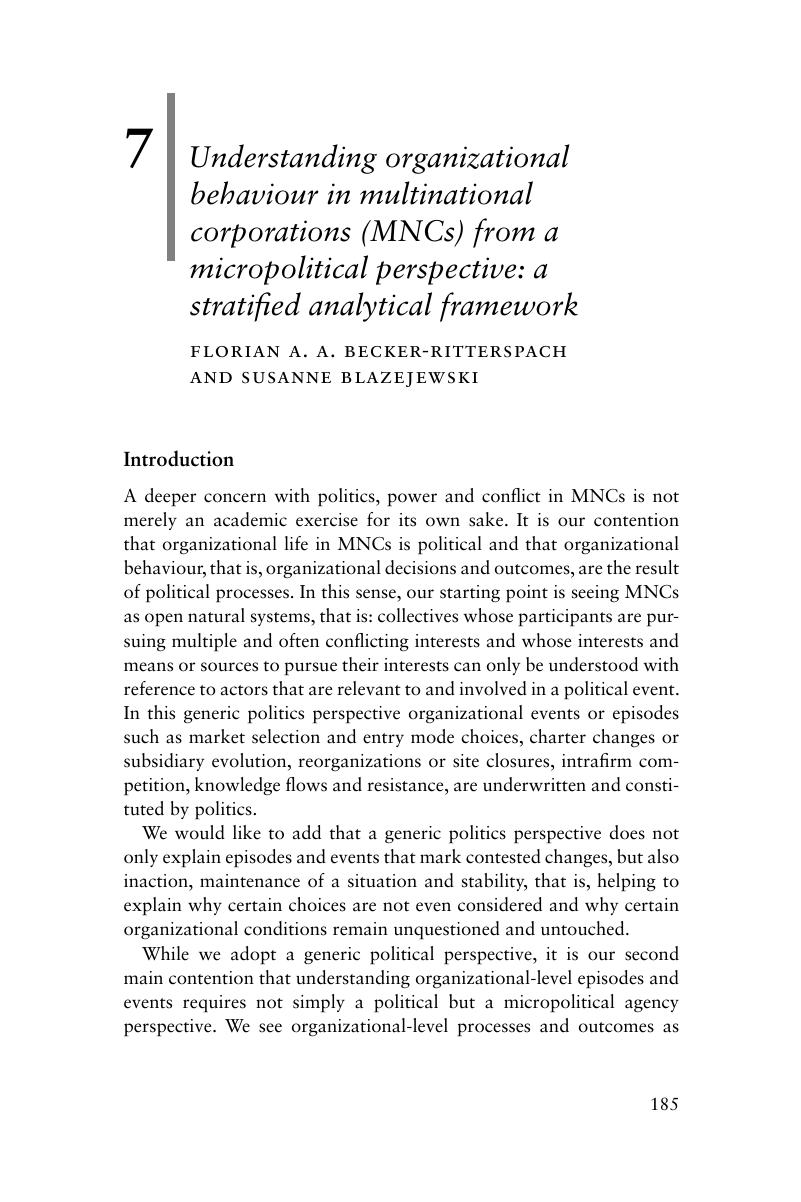Book contents
- Micropolitics in the Multinational Corporation
- Micropolitics in the Multinational Corporation
- Copyright page
- Contents
- Figure
- Tables
- Contributors
- Foreword
- 1 Introduction
- Part I Foundations of politics, power and conflict in MNCs
- Part II Seminal contributions
- Part III Analytical tools and applications
- 7 Understanding organizationalbehaviour in multinational corporations (MNCs) from amicropoliticalperspective: a stratified analyticalframework
- 8 Doing research on power and politics in multinational corporations (MNCs): a methodological perspective
- Part IV Reflections and new directions for research
- Index
- References
7 - Understanding organizationalbehaviour in multinational corporations (MNCs) from amicropoliticalperspective: a stratified analyticalframework
from Part III - Analytical tools and applications
Published online by Cambridge University Press: 05 June 2016
- Micropolitics in the Multinational Corporation
- Micropolitics in the Multinational Corporation
- Copyright page
- Contents
- Figure
- Tables
- Contributors
- Foreword
- 1 Introduction
- Part I Foundations of politics, power and conflict in MNCs
- Part II Seminal contributions
- Part III Analytical tools and applications
- 7 Understanding organizationalbehaviour in multinational corporations (MNCs) from amicropoliticalperspective: a stratified analyticalframework
- 8 Doing research on power and politics in multinational corporations (MNCs): a methodological perspective
- Part IV Reflections and new directions for research
- Index
- References
Summary

- Type
- Chapter
- Information
- Micropolitics in the Multinational CorporationFoundations, Applications and New Directions, pp. 185 - 207Publisher: Cambridge University PressPrint publication year: 2016
References
- 1
- Cited by



